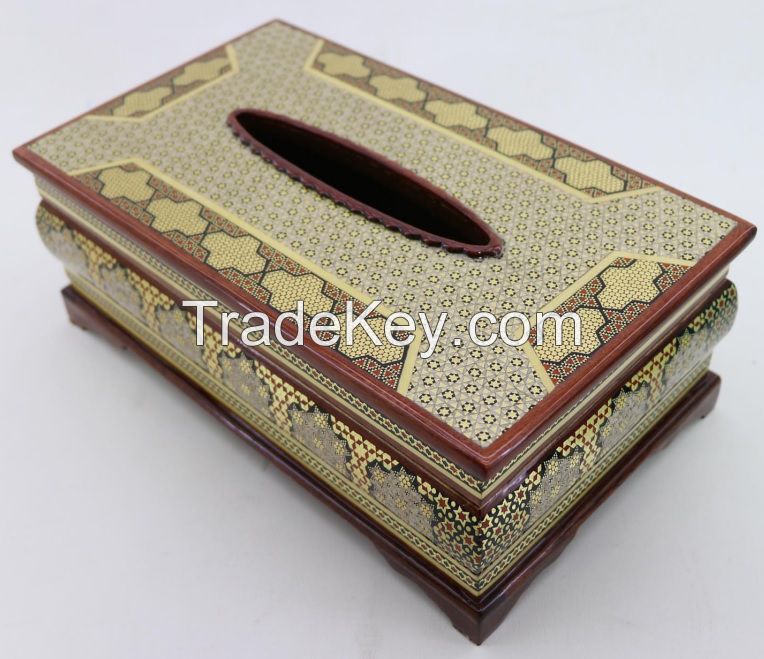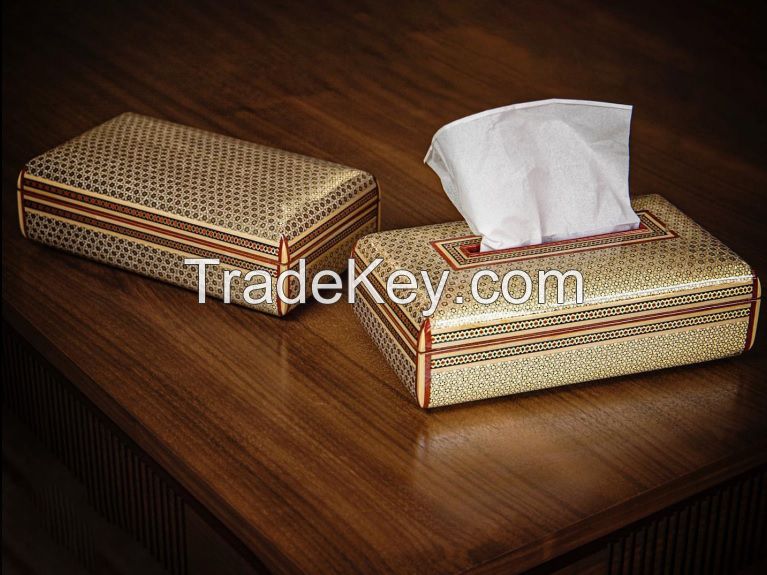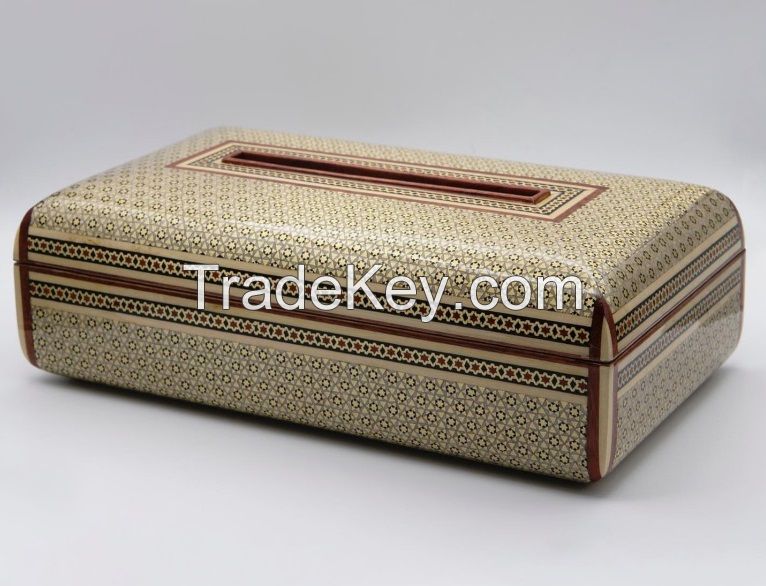タイトルまたは説明
Tissue Box
Tissue box decorated with Khatam layers and Tazhib
paintings.
An introduction to
Khatam (Khatam-kari)
Khatam or Khatam-kari art is an ancient Persian technique of
inlaying. In fact, it is a special type of Marquetry. In this art
the surfaces of objects are decorated with very small triangles.
Khatams various designs have always been in the form of regular
geometric shapes. These geometric shapes are made by placing
small triangles next to each other. These triangles are made of
wood, metal, bone and oyster. The smaller and more delicate the
triangles, the better the inlay. In an inlay design, at least
three triangles are used to make the smallest geometric unit and
up to four hundred triangles for the largest. Inlaying is done on
both wooden and metal objects, especially copper.
How are Khatam-kari
products made?
To make the khatam layers, first thin
strips with a maximum thickness of 1.5 mm are made of wood, metal
and bone. Prismatic wires are made of these strips during a
special process. Then, by putting these wires together and gluing
them with a special glue and finally pressing them, geometric
volumes called Ghame are made. By changing the order of prismatic
wires next to each other, different designs and patterns of
Ghame will be obtained. Next, an inlay layer is obtained by
cutting thin layers with a thickness of 1 to 1.5 mm from the made
Ghameh. The inlay artist creates a custom design by using a
combination of inlay layers and pasting them on the desired
surface.
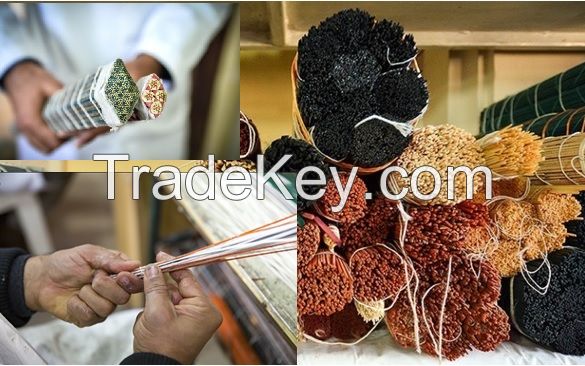
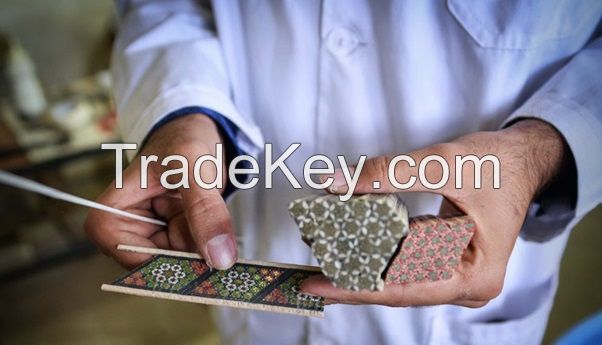
Materials used in Khatam-kari
work
-Types of wood: ebony, walnut and betel wood are used for black
and brown colors, logwood and jujube for red and orange colors,
maple and boxtree for yellow and cream colors, alder and sycamore
for green and orange colors.
-Types of metals: silver, gold, brass, copper and aluminum
-Types of bones: elephant bone and ivory, camel bone, horse
bone
Oysters: to create a glossy white color
-Special adhesives
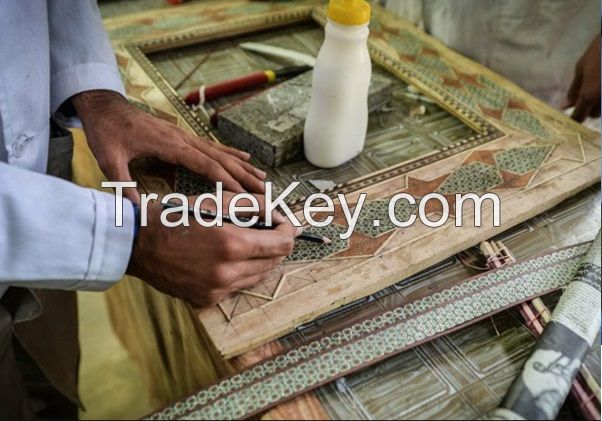
Quality
criteria for Khatam-kari products
Uniformity of colors and materials used in making the inlay
No change in color and shape over time
Restorations and patties are Unnoticeable in the final surface of
work
Symmetry of all shapes at the work surface and angles and
sides
The smaller the patterns and triangles, the higher the quality
and value of the work
Proper coverage by protective layers against moisture and also to
polishing the work
| 国: |
India |
| モデル番号: |
-
|
| 离岸价格: |
(交渉可能)
Get Latest Price
|
| ロケーション: |
- |
| 最低注文量の価格: |
- |
| 最低注文量: |
- |
| パッケージの詳細: |
- |
| 納期: |
- |
| 供給能力: |
- |
| 支払いタイプ: |
- |
| 製品グループ : |
- |
